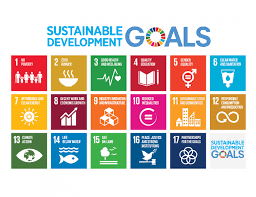
The history, current patterns, and causes of wealth distribution among nations remain some of the most intriguing and fundamental questions in development economics and international politics. This three-part course provides an in-depth exploration of international development, focusing on both theoretical frameworks and real-world issues that shape development policies and outcomes. Why are some countries rich while others remain entrenched in poverty? What does "development" truly mean, and how have our theories and policies evolved to address persistent global challenges such as chronic poverty, malnutrition, disease, human insecurity, and civil conflict? Is Africa poised for a development "miracle" akin to that of Asia? How does the empowerment of women transform development prospects worldwide? Does economic growth necessarily lead to democracy, even in countries like China or Cuba? These critical questions, among others, will guide our inquiry as we delve into the historical and contemporary dynamics of economic growth and human development.
The course emphasizes the political nature of development, examining the politics of North-South relations and how global issues like imperialism, environmental degradation, gender discrimination, global health crises, corruption, and conflict shape the development landscape. Students will engage with key concepts such as inequality, colonialism, neoliberalism and dependency while analyzing the actors, institutions, and issues that drive international development. We will also consider the global crises that challenge traditional political processes and how these shocks are experienced differently across countries. Some societies possess strong institutions, supportive political cultures, and the wealth to withstand such shocks, while others in the Global South face more significant challenges. By the end of this course, you will have a deep understanding of the multifaceted and interconnected forces shaping international development, equipping you with the knowledge to critically engage with and contribute to the ongoing debates in this field.
The course emphasizes the political nature of development, examining the politics of North-South relations and how global issues like imperialism, environmental degradation, gender discrimination, global health crises, corruption, and conflict shape the development landscape. Students will engage with key concepts such as inequality, colonialism, neoliberalism and dependency while analyzing the actors, institutions, and issues that drive international development. We will also consider the global crises that challenge traditional political processes and how these shocks are experienced differently across countries. Some societies possess strong institutions, supportive political cultures, and the wealth to withstand such shocks, while others in the Global South face more significant challenges. By the end of this course, you will have a deep understanding of the multifaceted and interconnected forces shaping international development, equipping you with the knowledge to critically engage with and contribute to the ongoing debates in this field.
- Instructor: Segun Fatudimu
